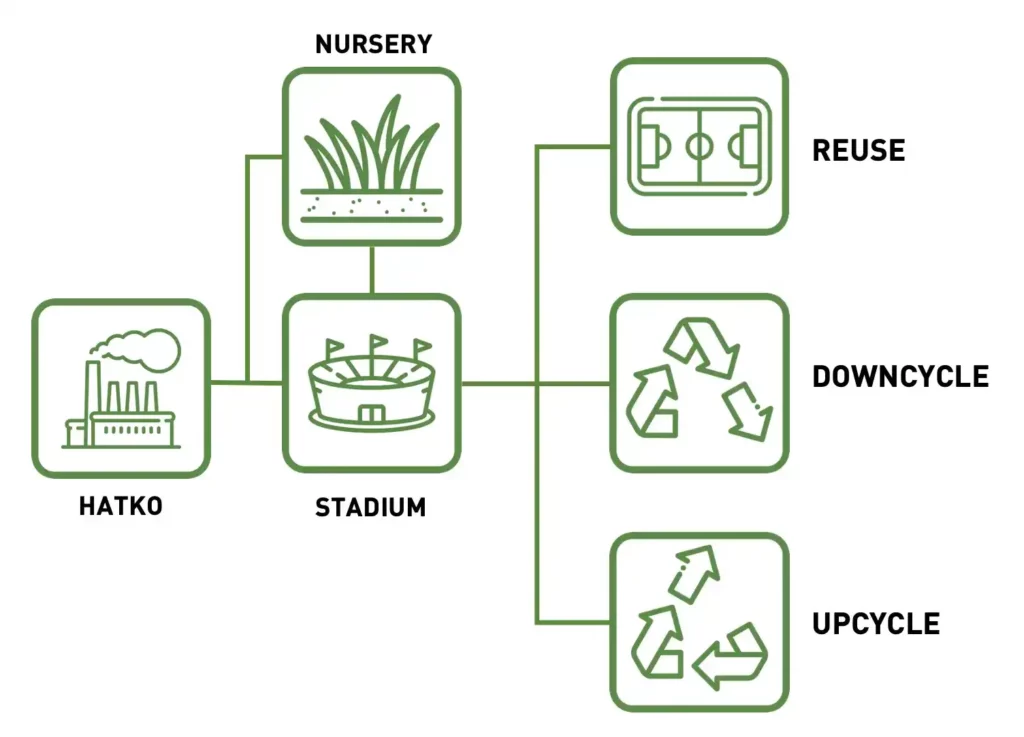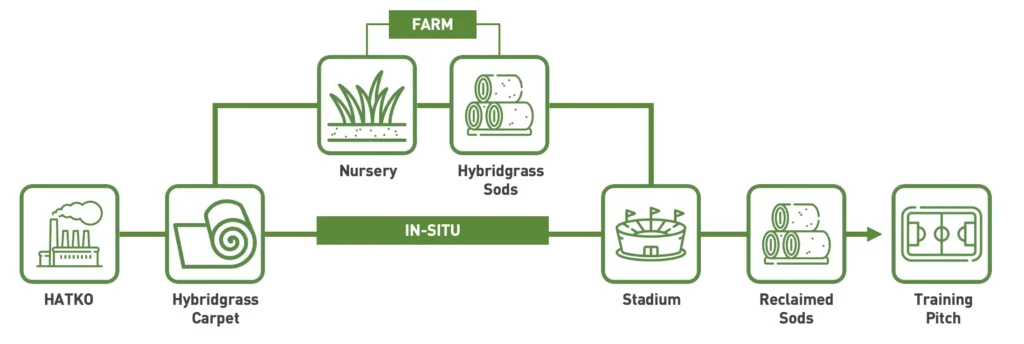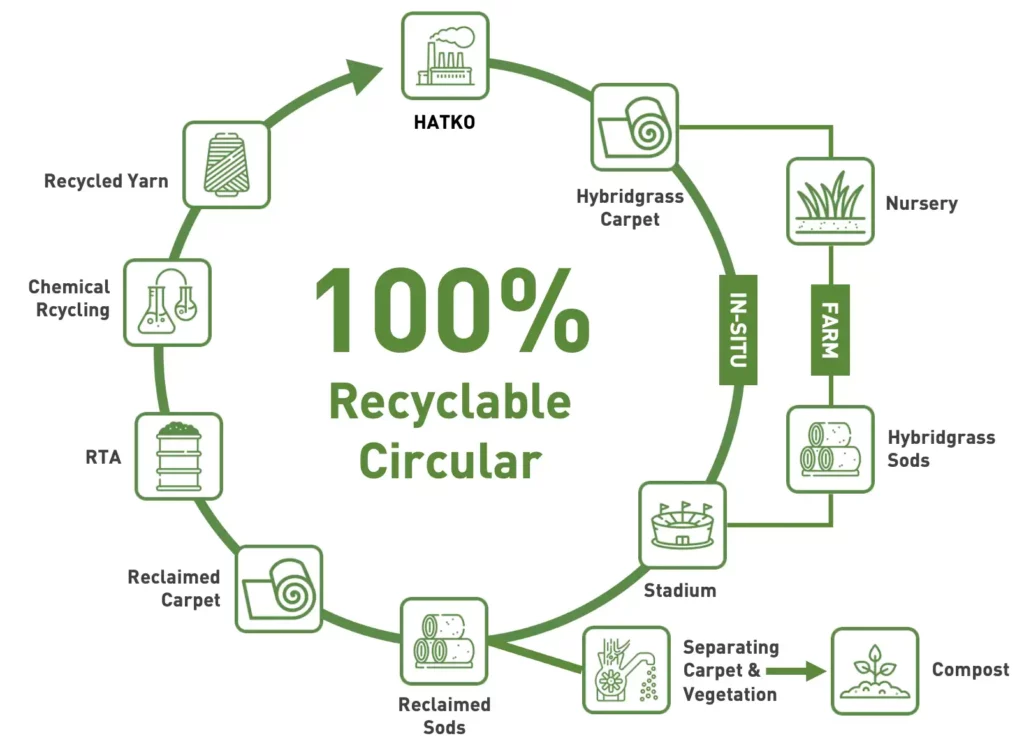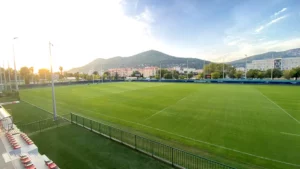STADIUM LEGACY PROGRAM
Developing a sustainable product with minimum carbon footprint and excellent recyclability has been our goal from the beginning. We have eliminated the use of latex backing by developing a new fusion coating technology, allowing us to produce lightweight yet a stable carpet using a single polymer. Reducing the weight of the carpet has significantly reduced our carbon footprint with regards to transportation.

We work with nurseries where Hybridgrass sods are grown in the farm to be later installed at the designated stadiums. Since our carpet is produced with a single polymer, it can be 100% recycled. At the end of its lifetime; the Hybridgrass sods can either be reused, downcycled orupcycled.

Reuse
The stadium pitches are expected to adhere to the highest performance criteria; however, most of them are good enough as training pitches at the end of its planned usage. When the pitch is to be replaced, the existing hybrid system can be re-harvested into rolls for relocating to a different scenario such as a training pitch or for landscape purposes.

Downcycle
After the Hybridgrass is removed from the pitch area, the turf is separated into vegetation & rootzone and the synthetic carpet. The vegetation and the rootzone is turned into compost for either disposal or re-use as top dressing material.

The synthetic carpet is then sent to a recycling facility, where it is shredded and processed into the so-called Recycled Turf Agglomerate (RTA). The produced RTA lends itself well to a variety of new applications such as picnic tables or road side bumpers.
Upcycle
Alternatively, the RTA can be further processed chemically for upcycling purposes.
The RTA is broken down into raw materials that can be used to make new products that are similar in quality and performance to those made from virgin raw materials.
This chemical recycling technology improves the circularity of plastics while delivering lower relative greenhouse-gas (GHG) emissions compared with processing the same amount of fossil-based feedstocks.




